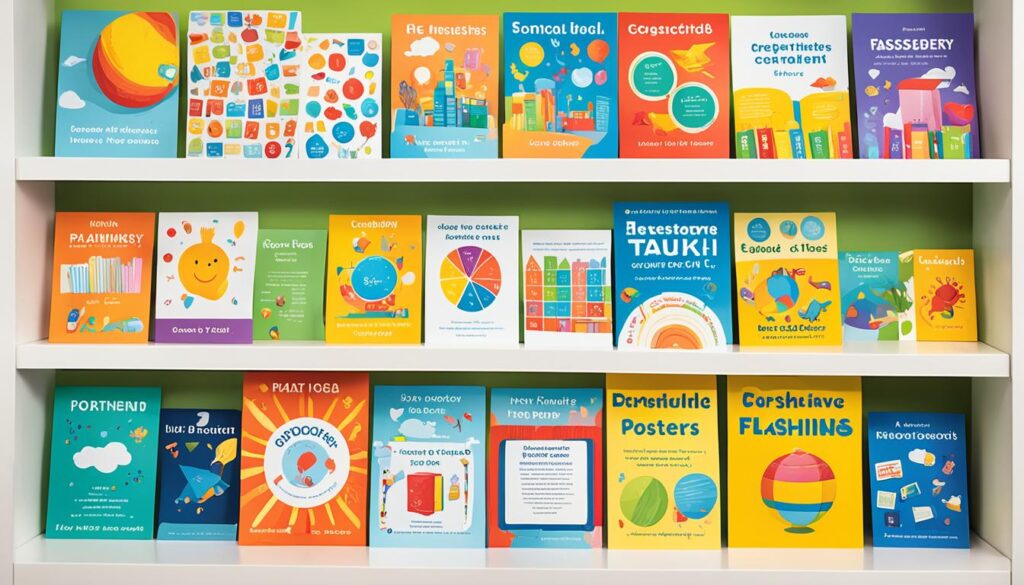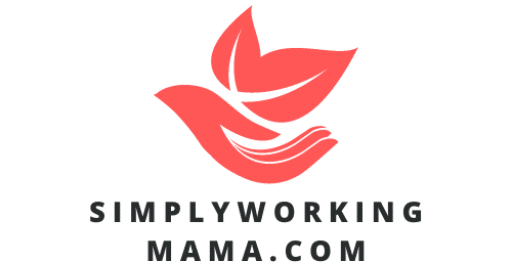Welcome to the exciting and transformative world of becoming a parent. Stepping into this new phase of life can be as daunting as it is thrilling, but equipped with the right parenting tips for new parents, the journey can be smoother and joy-filled. As an expectant parent, your mind might be brimming with questions and anticipations. That’s where we come in, offering you practical parenting guidance that caters to the quintessential first-time parent concerns and equips you for the road ahead.
From the essentials of nurturing your newborn to navigating your own emotional landscape, this new parent guide is intended to provide you with comprehensive expectant parent advice that prepares you not only for your baby’s arrival but also for the transformation of your entire lifestyle. Get ready to embrace the adventure of parenthood with confidence and joy!
Key Takeaways
- Understand the foundational steps for preparing to welcome your baby.
- Learn how to cultivate adaptability and a positive mindset for your parenting journey.
- Gain insights on setting up the perfect nursery environment for your newborn.
- Balance your professional life with new parental responsibilities effectively.
- Discover ways to maintain and strengthen your relationship after your baby’s arrival.
- Build a solid base of parenting knowledge through various educational resources.
- Prioritize the health and wellness of both the expectant mother and the developing baby.
Embracing the Journey of Parenthood
Stepping into the world of embracing parenthood can be a profound shift, both emotionally and psychologically. It’s a period filled with anticipation, change, and the joy of the unknown. As the contours of your life transform, the parenting journey begins—a path that is as enriching as it is challenging. The secret to navigating this new terrain is adaptability—a willingness to grow and evolve alongside your child.
Positive parenting is not just about guiding your child but also about self-discovery and parental growth. Parents who approach this journey with an open heart and mind can foster a nurturing environment ripe for both themselves and their children to thrive. The essence of adapting to parenting lies in accepting that perfection is a myth, and learning from each experience is a milestone.
- Approach parenting scenarios with flexibility, understanding that each child is unique and may require different strategies.
- Invest time in learning about positive parenting techniques that promote strong bonds and open communication.
- Educate yourself on milestones and developmental stages to set realistic expectations for both yourself and your child.
- Remain patient and give yourself grace—parental growth is continual and often comes with its set of trials and errors.
- Seek support when needed, whether from family, friends, or parenting communities; you’re not in this alone.
- Most importantly, cherish the moments—both the trials and the triumphs—as they are the fabric of your unique parenting journey.
Embracing the role of a parent is about more than just caring for another life; it’s about growing and learning in ways you never imagined. Let the journey mold you, as you mold the future of your child. Parenthood, in all its glory and chaos, is a dance of love, a passage to be savored, and a pathway to incredible transformation.
Preparing for New Arrivals
The arrival of a new baby is an event filled with joy, anticipation, and a fair share of preparation. Ensuring your home is ready to welcome your bundle of joy is paramount for the well-being and comfort of both parent and infant. The process of nursery preparation, amassing baby gear essentials, and choosing a pediatrician form the trinity of prenatal homework that paves the way for a smooth transition into parenthood.

Setting Up the Nursery
Creating a safe, serene, and stimulating nursery environment is not just about aesthetics—it’s a crucial step in preparing for baby. Start with choosing a quiet room that fosters sleep and calmness. Consider sustainable, non-toxic materials for furniture and paint to ensure a healthy atmosphere. Organize a baby checklist that includes a crib, changing table, and a comfortable chair for feedings and cuddles. Lighting should be gentle and dimmable to adapt to different times of the day and night.
Essential Baby Gear
When it comes to baby gear essentials, the list can seem endless. Prioritize items necessary for safety, nutrition, sleep, and mobility. A reliable car seat, a sturdy stroller, a safe crib, and a set of bottles tailored for newborns should top your list. Clothing should be comfortable, easy to clean, and season-appropriate. Moreover, a well-stocked diaper changing station will make hygiene routines less of a chore.
Choosing a Healthcare Provider
Selecting an infant healthcare professional before the baby’s arrival is critical. Begin choosing a pediatrician by seeking recommendations from friends, family, or your obstetrician. Schedule interviews to ensure their philosophies align with your parenting style. Additionally, verify their office hours, hospital affiliations, and emergency procedures. Remember, your pediatrician will be an essential partner in your child’s growth and development.
Balancing Work and Family Life
Navigating the intricate journey of work-life balance for parents is a feat that requires careful planning, flexibility, and support. The birth of a child is a miraculous event that reshapes your priorities and daily routines, making the need for a harmonious balance between professional responsibilities and family life more critical than ever. Understanding your options and rights, exploring available resources, and building a robust support network are key steps in this process.
Understanding Maternity and Paternity Leave
To maintain a work-life balance for parents, understanding the ins and outs of maternity leave and paternity leave is essential. These leave policies vary by employer, but they are critical for bonding with your child and adjusting to new family dynamics. The Family and Medical Leave Act (FMLA) provides eligible employees with up to 12 weeks of unpaid, job-protected leave per year. Discovering your company’s specific policies and any available state benefits early in your pregnancy can aid in seamless planning.
Exploring Childcare Options
When it’s time to return to work, having reliable childcare solutions becomes a cornerstone of a parent’s routine. Childcare can come in many forms, from in-home nannies to daycare centers, and each has its advantages and considerations. Researching options, visiting facilities, and comparing costs can help you find the best childcare solution that aligns with your family’s needs, budget, and peace of mind.
Finding Your Support System
Devising a parental support system is vital for moments when balancing becomes overwhelming. Support can be found in family, friends, or local parent groups that provide emotional aid and practical resources like shared babysitting or meal trains. These networks are not only a lifeline during challenging times but also a great way to connect with other parents navigating similar experiences.
The table below offers a comparative look at maternity and paternity leave options provided by major U.S. companies:
| Company | Maternity Leave Duration | Paternity Leave Duration | Additional Benefits |
|---|---|---|---|
| Netflix | 52 weeks | 52 weeks | Flexible return-to-work policy |
| 18 weeks | 12 weeks | Parental leave bonus | |
| Bank of America | 16 weeks | 16 weeks | Childcare reimbursement |
| Microsoft | 20 weeks | 12 weeks | Gradual return-to-work program |
Nurturing Your Relationship Post-Baby
Welcoming a new baby into your life is a joyous occasion that often comes with unexpected challenges, particularly when it comes to maintaining relationships after baby. Amidst the sleepless nights and new routines, finding time to nurture your couple’s connection is crucial for a strong partnership parenting dynamic. Let’s explore effective strategies that can help keep your post-baby relationship healthy and vibrant.

One of the key ingredients to a thriving post-baby relationship is communication. It’s easy for misunderstandings to arise when both partners are navigating the uncharted waters of parenthood. Open, honest dialogues about each other’s needs, fears, and expectations can fortify your bond during this transformative period.
- **Schedule Regular Check-ins:** Carve out time to talk without distractions, even if it’s just for a few minutes each day.
- **Express Appreciation:** Acknowledge the effort your partner is putting into parenting; gratitude goes a long way.
- **Discuss Changes:** Be open about the shifts in your relationship dynamic; work together to adjust your course as needed.
Quality time together is another centerpiece for preserving your post-baby relationship. While it might seem impossible to find moments for yourselves, it’s essential for staying connected.
- **Date Nights at Home:** After the baby is asleep, have a special dinner or watch a movie together.
- **Involve the Baby:** Enjoy walks or outings where you can bond as a family but also as a couple.
- **Find Shared Interests:** Pursue new hobbies that can be enjoyed together during baby naps or quiet times.
Finally, always aim for mutual support. Parenting is a team effort, and both partners need to contribute and recognize each other’s contributions.
- **Trade Responsibilities:** Ensure both partners get a break by taking turns with baby-related tasks.
- **Support Each Other’s Goals:** Encourage one another to pursue personal interests and career objectives.
- **Seek Help When Needed:** Don’t hesitate to ask for support from friends, family, or professionals to alleviate the pressure.
Strong partnership parenting is not an effortless journey, but the rewards of growing together and forming a united family front are invaluable. By putting effort into maintaining your connection and supporting one another, your relationship can thrive, not just survive, in the beautiful chaos of raising a child.
Building Your Parenting Knowledge
As you anticipate the arrival of your child, enhancing your parenting education becomes an integral part of preparation. In the digital age, an abundance of information is available, yet the most impactful learning often comes from structured environments and seasoned individuals. Let’s explore the rich resources and experiences that can shape your understanding and approach to raising your child.
Educational Resources for Parents to Be
The digital world abounds with resources aimed at learning to parent, providing a variety of mediums to suit every learning style. Engaging with extensively researched parenting books can give you a foundation in child development and parenting philosophies. Comprehensive websites offer articles and videos that cover every parenting topic imaginable, from feeding and sleep training to emotional intelligence and discipline.
Online forums and social media platforms present opportunities to join parenting groups where you can exchange parental advice and support. Moreover, communities often have local libraries or family centers that provide free resources, including literature and educational materials geared towards new parents.
Attending Parenting Classes or Workshops
Parenting classes and parenting workshops provide structured guidance and a syllabus that can help demystify the complexities of child-rearing. These programs are typically led by experts in child development and offer a curriculum that ranges from birthing techniques to strategies for effective communication with children.
Hands-on workshops offer the benefits of not just learning, but practicing skills in a supportive environment. Topics can vary widely, from infant CPR to managing toddler tantrums, ensuring that you have practical tools at your disposal. These sessions also enable you to meet and connect with other expectant parents, fostering a sense of community and shared learning.
Seeking Advice from Experienced Parents
There’s a wealth of knowledge to be gained from those who have already embarked on the parenting voyage. Seeking parental advice from friends and family members can provide real-world insights and personalized guidance that books or websites may not capture.
Engaging in conversations with parents in different stages of raising children can reveal diverse parenting styles and coping mechanisms. Such exchanges often lead to anecdotes that are not only enlightening but also comforting, knowing that others have faced similar challenges and triumphs in their parenting journeys.

As you build up your arsenal of knowledge, remember that parenting is as much about intuition as education. While there is no universal manual for raising a child, equipping yourself with a blend of researched strategies, expert-led training, and anecdotal wisdom can greatly enhance your confidence and capabilities as a parent. Embrace the learning process—it’s just another facet of the incredible journey of parenthood.
Advice for Parents to Be: Health and Wellness
Embarking on the journey of parenthood brings a magnified focus on pregnancy health and wellness. For expectant parents, understanding the nuances of maintaining optimal health not only fortifies the foundation for fetal development but also ensures that the mother’s body is best prepared for the transformative experience of childbirth and parenting.
Mother’s Health During Pregnancy
The well-being of the mother is paramount during pregnancy, as her health directly impacts the growing baby. Maintaining a balanced diet, getting regular exercise tailored for pregnancy, and staying hydrated are all essential elements of an expectant mother’s routine. Regular check-ups with healthcare providers are crucial for monitoring the mother’s vitals, nutrient levels, and overall physical condition, addressing any concerns as they arise.
Importance of Prenatal Care
Prenatal care importance cannot be overstated. It encompasses a series of check-ups and tests designed to prevent potential health issues and promote the best possible health for both mother and baby. Couples looking to optimize prenatal health should schedule early and consistent appointments with their healthcare provider, ensuring they receive professional guidance tailored to their individual needs throughout the pregnancy.
Stress Management for Expecting Parents
Managing stress during pregnancy is a crucial aspect of expectant parent wellness. Stress can adversely affect both the physical and emotional states of expecting mothers, leading to complications that can extend beyond the delivery room. It’s vital to identify stressors and employ techniques like prenatal yoga, meditation, and deep breathing exercises to maintain a serene mind. Joining support groups can also provide a comforting community that understands and shares the unique experiences of pregnancy.

Adopting these practices not only contributes to a healthier pregnancy but also lays the foundation for successful and resilient parenting. Begin this profound life chapter with the assurance that your health, and that of your unborn child, is in capable hands, fortified by knowledge and nurtured by care.
Conclusion
The parenting journey conclusion is a time for reflection and anticipation. We’ve ventured through the essential advice, from setting up a nursery to finding balance with work and nurturing your romantic relationship post-baby. These summary of parenting tips have aimed to provide a solid groundwork for you, the expectant parent, as you stand on the precipice of this life-changing experience.
As we draw these insights to a close, the final thoughts on becoming a parent are inherently tied to a blend of preparation and flexibility. The advice shared serves as a guide, but the unique rhythm of your own family will also be a teacher. Parenting is a constant learning process that thrives on support, resilience, and a willing heart to adapt. It is both a challenge and a profound joy.
As you step into this new role, remember that each stage of parenting comes with its joys and tests. Embrace them with confidence and enthusiasm and keep in mind that the journey does not end here. Continuous learning and a robust support system are your allies. Trust your instincts, celebrate small victories, and always reach out when in doubt. The adventure of parenthood awaits, and it promises to be one of the most rewarding chapters of your life.



